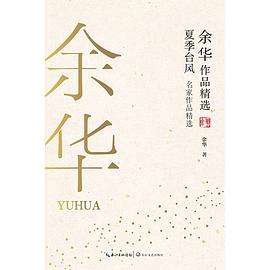
Liu Xu (刘旭)
Writers Publishing House: Beijing (作家出版社:北京), 2018.
Reviewed by Tanvi Negi (PhD Candidate, Jawaharlal Nehru University, HYI Visiting Fellow)
Liu Xu’s book “On Yu Hua” is a timely and valuable addition to the scholarship on China’s renowned contemporary writer, Yu Hua. This book carries out a detailed, methodical and probing analysis of Yu Hua’s literary journey from his early days in the 1980s to his recent works, situating them in the broader context of contemporary Chinese literature.
The book adopts a chronological approach to Yu Hua’s works and divides his literary career into four phases with three distinct transformations. The first chapter, “Before Avant-garde”, traces the beginning of his journey as a writer in his hometown, Haiyan, Zhejiang, with the publication of his first short story, The First Dormitory, in 1983 in the magazine West Lake. While most research on Yu Hua focuses on his writings since the publication of his famous avant-garde short story On the Road at Age Eighteen in 1987, in this book, Liu Xu attempts to understand how Yu Hua reached this point. He cites the influence of Kawabata Yasunari on Yu Hua during this stage. Moving from the modernist influence in his early works to post-modernist elements in his avant-garde works published between 1987 and 1989 forms the main part of the second chapter. Liu Xu not only carries out careful and detailed analysis of Yu Hua’s famous avant-garde works like On the Road at Age Eighteen, Worldly Things are Like Mist, 1986, April 3rd Incident, One Kind of Reality, In the Memory of Miss Willow Yang and The Past and the Punishments, but he also traces Yu Hua’s position among other avant-garde writing by contrasting his works with fellow contemporary writers like Ma Yuan, Can Xue and Ge Fei. The detailed exposition on postmodernism in China and its influence on avant-garde writing in late 1980s China in this chapter makes it theoretically richer.
The third chapter studies the second transformation in Yu Hua’s writing, from “post-modernist” to what Liu Xu calls the “grass-root era” with the publication of his novels in the 1990s, when, according to Liu Xu, Yu Hua began to write about “common people” (小人物). Through a detailed analysis of Yu Hua’s novels Cries in the Drizzle, To Live, and Chronicles of the Blood Merchant in this chapter, Liu incisively elaborates on the narrative and thematic structures of the works. The last chapter in the book is dedicated to Yu Hua’s works since the beginning of the 21st century, the third major transformation in Yu Hua’s works, which Liu argues is a turn towards commercial writing, focussing on the novels Brothers and The Seventh Day. Comparing Brothers to the popular Chinese journal Stories and even citing two stories from the journal, Liu Xu attempts to critique the novel and Yu Hua for privileging entertainment and commercial value over aesthetic quality. In this chapter, Liu also discusses the extremely polarised reception of Brothers in China and attempts to reflect on the larger issues of popular and “pure literature” within the context of Yu Hua’s novel Brothers.
Liu Xu’s careful and detailed study of Yu Hua’s creative oeuvre is original in many places. It is not a biography of Yu Hua but a “critical analysis of his writing technique and its changes”[1] in author’s own words. The book’s success lies in its efforts to study Yu Hua and his writing as one organic whole, the person and the work, tracing the influence of the writer as a person on the writer as a creative artist. The book could have been richer had the author studied Yu Hua’s novels also in the larger context of contemporary Chinese writing with references to other contemporary writers’ works. This book is an indispensable resource for scholars interested in Yu Hua and modern Chinese literature.
[1] Liu Xu, “On Yu Hua”, 307.
